In my opinion, the most important skill for marketers to master is project management. Any average day for us consists of juggling a multitude of projects. As marketers, we often face tight deadlines and a high level of complexity in digital projects. That’s why developing an effective project management approach can be the key to success in marketing.
Project management is a critical part of any marketer’s toolkit — it helps us stay organized, maximize efficiency, and make sure that our projects are successful. By using project management capabilities striving to adopt a proactive mindset, create achievable goals, and continually learn from our experiences, marketer project manager, we can ensure that our marketing projects are as successful as possible.
Brief overview of the importance of project management in marketing
Project management plays a key role in marketing success because it allows us to efficiently organize resources, prioritize tasks, and ensure that projects are completed on time. It also helps marketers understand the scope of their projects, anticipate potential issues or challenges, and plan for contingencies. Furthermore, project management enables teams to collaborate more effectively and stay on track with goals. By using effective, project management software, marketers can save time and money, while also ensuring that their projects are completed with greater success.
Understanding Project Management in Marketing
Project management in the marketing department typically follows the same principles as project management in other fields. However, it must be adapted to fit the needs of marketing teams. Marketers need to learn how to adapt their project management approach to suit the specific goals and timelines of their projects. This includes taking into account the unique dynamics of the target market, adjusting for any changes that may occur during the course of the various marketing project managers, and understanding how different stakeholders will be affected. This is crucial for marketing success.
Key Components of Marketing Project Management
Breakdown of essential elements such as planning, execution, monitoring, and closing
Project management in marketing consists of four key components: the planning stage, execution, project charter, monitoring project completion, and closing.
Planning is the first step in project management process. It includes the project requirements, developing an overall strategy for the project, setting goals and timelines, assigning tasks to team members, and outlining any potential risks that may arise during the course of the project. This stage of project plan requires marketers to thoroughly investigate their target market and customer base in order to create a successful plan.
Execution is the entire process of carrying out the project according to the plan. This involves monitoring progress, ensuring that tasks are completed on time, and making any necessary adjustments along the way. It also comes down to managing resources such as personnel, equipment, and materials in order to ensure that the project is completed within the timeline and budget.
Monitoring is an essential part of any successful marketing project management tool used. It requires marketers to track progress, assess results, and identify potential issues or risks as they arise. This step allows marketers to adjust their approach in order to ensure that projects are completed on time and within budget.
Finally, closing a project involves assessing the results, evaluating any lessons learned, and tying up loose ends. This final stage of a project scope is often overlooked but can be invaluable in a project’s success in terms of improving future project management strategies.
By understanding the importance of project management in marketing and mastering the key components involved in project planning task management, us marketers can ensure that their projects are successful. With a well-developed project management approach, marketers can save time and money, while also making sure that their projects are completed with greater efficiency and effectiveness.
Key points to be covered in this post
- Adopting a proactive mindset
- Creating achievable goals
- Using project management tools
- Developing a rhythm of continuous learning and improvement
- Evaluating successes and failures to learn from experiences
- Understanding the importance of project management in marketing success
- Saving time and money while increasing efficiency
- Enhanced collaboration between teams and stakeholders
- Ensuring that projects are completed on time
Buckle up, here we go!

Adopting a proactive mindset
The first step to mastering project management as a marketer is to adopt a proactive mindset. This means thinking ahead and predicting potential pitfalls that could arise during the course of your projects. Anticipating problems and taking preventative measures can be a great way to minimize risk and maximize efficiency.
Creating achievable goals
Once you’ve adopted a proactive mindset, the next step is to focus on creating achievable goals. This means breaking down large projects into smaller tasks, setting realistic deadlines, and being mindful of available resources that can help you meet your goals. A great way to achieve this is to use project management tools such as Trello, Asana, and Basecamp. These platforms can help break down tasks into manageable chunks and streamline communication between teams.
Using project management tools
I learned over the years to use technology to my advantage. Long gone are my days of the “sticky note” system. By leveraging project management tools, you can access real-time information, assign tasks to team members, receive notifications about progress updates, and track the progress of your projects. These tools allow you to take a more holistic approach to managing projects and ensure that all stakeholders are on the same page when it comes to deadlines and expectations. My current system, though it seems to morph every few years, is monday.com. I’ve set up “boards” containing “groups” that hold all of my departments tasks, dates, status, project budget, notes, etc. That way everyone has access to our real-time information.
Developing a rhythm of continuous learning and improvement
In addition, effective project management for marketers depends on developing a rhythm of continuous learning and improvement. We’re in the business of experimentation and trial-and-error; so it’s important to approach each project with an open mind and a willingness to adapt. By consistently taking the time to evaluate successes and failures, you can ensure that you are learning from your experiences and using them to improve future projects.
Evaluating successes and failures to learn from experiences
At the end of each project, it’s essential to take the time to review successes and failures. This will help you learn from your experiences and make adjustments for future projects. Ask yourself questions such as: What went well? What didn’t go according to plan? What could have been done differently? How can I do better next time? Use this information to identify areas for improvement and learn from your mistakes.
Understanding the importance of project management in marketing success
Ultimately, understanding the importance of project management is essential for marketers who want to succeed in their field. It’s a key skill that can help us manage resources efficiently, stay on track with goals, anticipate potential issues, save time and money, and collaborate more effectively. By leveraging the right tools, creating achievable goals, and continuing to learn from our experiences, we can ensure that our marketing projects are successful.
Saving time and money while increasing efficiency
Project management is also a great way to save time and money. By taking a proactive approach, marketers can anticipate potential issues or problems and plan for contingencies. Furthermore, utilizing the right tools can help streamline project timelines and maximize efficiency. This in turn can lead to significant cost savings and increased productivity.
Enhanced collaboration between teams and stakeholders
Enhanced collaboration between teams and stakeholders
Collaboration is another key benefit of a project management platform. By leveraging tools such as Slack, Zoom, and Teams, teams can communicate effectively no matter where they are located. This allows for better collaboration between departments and external stakeholders, and ensures everyone is on the same page when it comes to goals and expectations.
Ensuring that projects are completed on time
Effective project management also helps projects get completed on time. By breaking down tasks into manageable chunks, assigning deadlines, and monitoring progress, marketers can ensure that projects are completed within the specified timeline. Additionally, having a system of continuous learning and improvement can help teams become more efficient overtime and maximize productivity.
Case Study: Successful Marketing Project Management in Action
Here are some real-life examples that exemplified excellent project management principles.
The marketing team at Marigold Health used several project management tools to restructure their workflow and manage marketing projects. This not only streamlined their production process but also improved collaboration between teams and stakeholders. As a result, the company and entire team was able to increase efficiency, save time and money, and complete projects on time.
The analytics marketing team member at Flux Digital leveraged project management tools to better manage their resources and optimize efficiency. By taking a proactive approach and assessing potential risks, the whole marketing strategy team was able to reduce project timelines and ensure that all projects were completed on time.
The design team at Acropolis Technologies used several project management software tools to break down complex tasks into manageable chunks. This allowed them to monitor the project progress in real-time and adjust plans as necessary. As a result, the team was able to complete projects faster and within budget.
Summary
Each of these projects was successful for a few reasons. Firstly, each each team member leveraged project management tools to streamline their process and optimize efficiency. Secondly, they took the time to evaluate successes and failures in order to learn from experiences and make adjustments for future projects. Lastly, they maintained good communication between teams and stakeholders which ensured that everyone was on the same page when it came to goals and expectations for project milestones and completion.
From these examples, we can learn a few lessons that can be applied to future projects. Firstly, it’s important to leverage the right tools in order to streamline production processes and optimize efficiency. Secondly, it’s essential to take the time to evaluate successes and failures in each project in order to identify areas for improvement and learn from our mistakes. Lastly, strong communication and team collaboration are key to ensuring successful projects.

Common Challenges in Marketing Project Management and How to Overcome Them
No matter how experienced you are in project management for marketing, challenges will always arise. Here are some of the common challenges that marketers face and tips on how to overcome them.
Time constraints: One of the most common challenges in marketing project management is time constraints. To overcome this, it’s important to break down tasks into manageable chunks and be realistic about deadlines. Additionally, having a system of continuous learning and improvement can help teams become more efficient over time and reduce project timelines.
Resource allocation constraints: Another challenge is resource constraints. To overcome this, marketers must be proactive in anticipating potential issues or problems and plan for contingencies. Utilizing the right tools can also help streamline processes and maximize efficiency which can lead to significant cost savings.
Lack of collaboration: Without proper communication and other collaboration tools, projects can quickly become chaotic. To overcome this, leverage tools such as Slack, Zoom, and Teams to ensure that everyone on project team is on the same page when it comes to project goals and expectations.
By understanding the importance of project management in marketing success and being aware of common challenges, marketers can ensure that their projects are successful. By leveraging the right tools, creating achievable goals, and continuing to learn from our experiences, we can ensure that our various project and marketing initiatives are successful.
The Future of Marketing Project Management
The landscape of marketing project management tools and software is constantly changing. As technology and trends evolve, it’s important to stay up-to-date on the latest tools and strategies. Here are some areas that are likely to be particularly important in the future:
Data analysis
Data is becoming increasingly important for marketers as it allows them to measure performance and make more informed decisions. As a result, it’s essential to leverage data analysis tools such as Google Analytics and Tableau in order to gain valuable insights into projects.
Artificial Intelligence
AI is becoming increasingly important in the marketing project management process. By leveraging AI-driven tools, marketers can automate certain tasks, streamline processes, and make better use of resources. Additionally, AI can help marketers gain insights into customer behavior and optimize marketing campaigns for maximum ROI. This is a new tool, as us marketers know, and it can help with brainstorming, clear thinking and outline key elements.
Automation
Automation is becoming increasingly popular in marketing project management as it helps streamline processes and save time. By leveraging automation tools such as Zapier or IFTTT, marketers can automate repetitive tasks and free up resources to focus on more important tasks.

By staying up-to-date on the latest tools and strategies, marketers can ensure that their projects are successful. Additionally, leveraging data analysis, artificial intelligence, and automation will help maximize efficiency and save time. By understanding the importance of organization and project management in marketing campaign success and being aware of common challenges, marketers can ensure that their projects are successful. By leveraging the right tools, creating achievable goals, and continuing to learn from our experiences, marketers can ensure that their projects are successful. With the right tools and strategies in place, marketers can maximize efficiency and ensure project success.
What are your project management tips and tricks? Share your own experiences in the comments below. Same if you have any challenges that I can help with. The more we all learn and grow, the better we all become!


